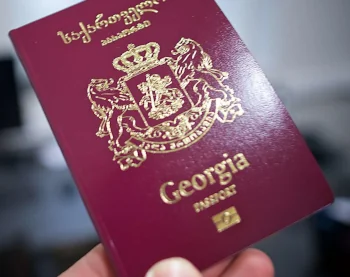Renouncing Georgian citizenship requires compliance with the procedure established by law. The procedure is regulated by the Constitution of Georgia and the Law “On Citizenship of Georgia”. Here are the main stages and rules:
General Provisions
Legislation: Citizenship may be terminated upon a personal application of a person, but its loss is inadmissible if the person remains stateless.
Features: Changing citizenship does not affect the citizenship of children if their parents change their citizenship. Similarly, divorce does not automatically change the citizenship of the spouses.
The process of renouncing citizenship
1. Preparation of documents:
- A completed application for renunciation of citizenship.
- A valid Georgian passport.
- Documentary evidence of foreign citizenship or a guarantee of its receipt (otherwise citizenship cannot be lost).
- A receipt for payment of the state fee.
- Other documents that may be required (for example, birth or marriage certificates).
2. Submission of application:
The application is submitted to the Public Services Agency of Georgia (Justice House) or through diplomatic missions of Georgia abroad.
3. Review of the application:
- The application is submitted for review to the Ministry of Justice, which checks the legality and sufficiency of the grounds for termination of citizenship.
- After this, the documents are submitted to the President of Georgia, who makes the final decision.
4. Obtaining the result:
- If the application is approved, the person officially loses Georgian citizenship.
- The procedure may take several months.
Restrictions
- Citizenship cannot be terminated if this would make the person stateless.
- The procedure does not apply to persons who are under state support for legal or physical reasons (for example, minors without the consent of a guardian)
It is possible to renounce Georgian citizenship through a representative with a power of attorney. This is especially convenient if you are abroad and cannot be present in person in Georgia.
How to issue a power of attorney
1. Issuing a power of attorney:
- A power of attorney can be issued through a notary in Georgia, including remotely (via video link, if you have a Georgian identity card). The notary registers the power of attorney in the registry.
- To issue a power of attorney, you may need copies of your personal documents and a detailed description of the powers that you delegate to the representative.
2. Legalization of a power of attorney
3. Submitting an application for renunciation of citizenship:
- A representative may apply for renunciation of citizenship to the Ministry of Justice of Georgia if he/she has the appropriate authority. To do this, you need to clarify the list of required documents in advance, as their number and content may change.
Please note that when drawing up a power of attorney, it is important to check that it clearly specifies all the necessary powers, including the right to represent interests in government agencies and submit applications for renunciation of citizenship. If the power of attorney is drawn up with errors or lacks key powers, the representative may not have the right to perform the necessary actions, including:
- Representation of interests in government agencies of Georgia.
- Submitting an application for renunciation of citizenship.
- Obtaining documents confirming the loss of citizenship.
When drawing up a power of attorney, it is important to:
- Correctly indicate all powers, including a description of the actions that the attorney-in-fact can perform on your behalf.
- Use the correct wording recommended by a Georgian notary or lawyer to avoid misunderstandings on the part of government agencies.
- Make sure that the power of attorney is registered in the Public Registry of Powers of Attorney of Georgia (the document number and identifier are required to access the registry).
If the power of attorney is drawn up outside of Georgia, it is necessary to:
- Apostille the document (if the country is a party to the Hague Convention).
- Legalize through the consulate (if the country is not a party to the Hague or Minsk Conventions).


 Ask a question in Telegram
Ask a question in Telegram Ask a question in WhatsApp
Ask a question in WhatsApp